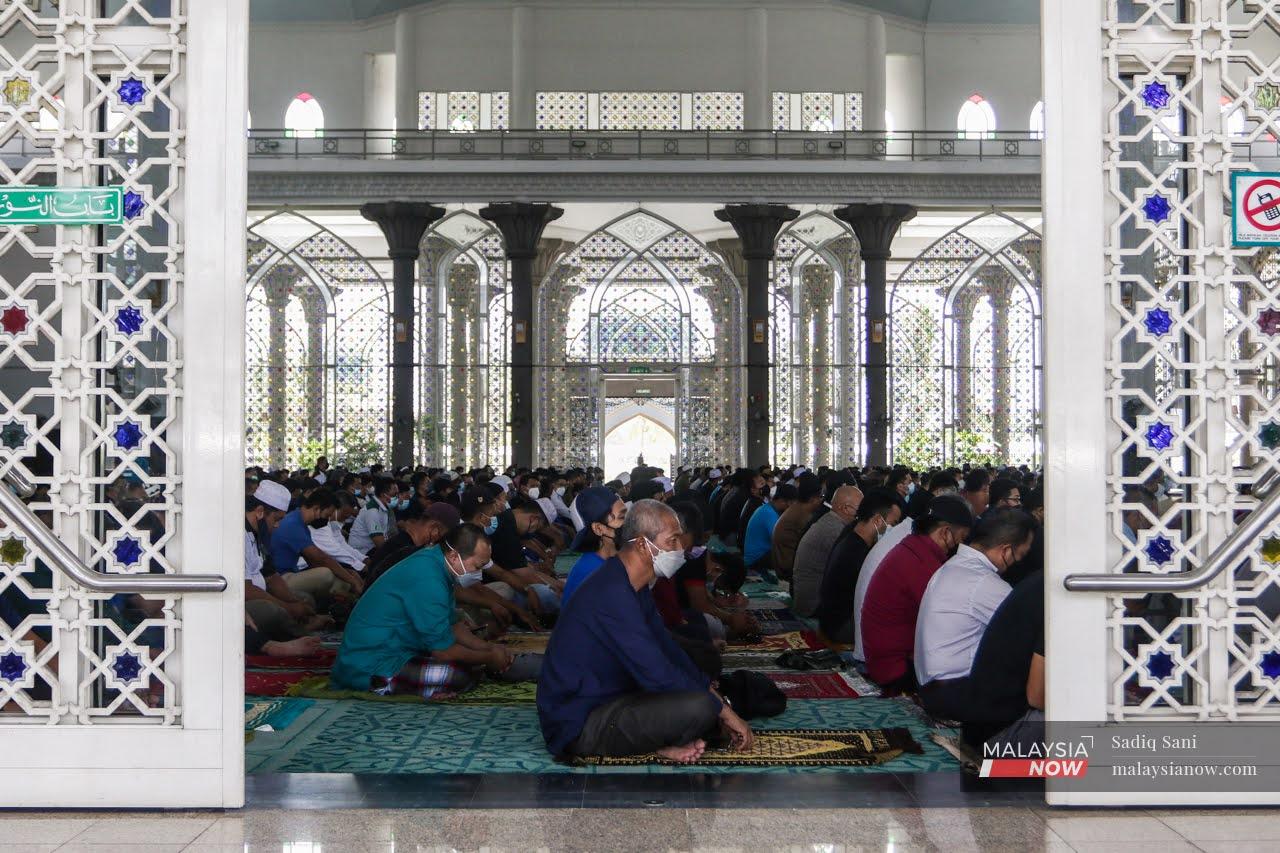Klang Valley mosques prepare for livelier Ramadan this year
But while things are better than they were during the movement control order periods, they are still not the same as they were before the onset of Covid-19.
Just In
Mosques in the Klang Valley are gearing up for a livelier Ramadan this year as the pandemic restrictions which threw a spanner in the works of the two previous rounds of fasting months are gradually eased.
Among others, they are now allowed to host more programmes on-premise as the country transitions towards the endemic phase of Covid-19.
Checks by MalaysiaNow at several mosques in the Klang Valley found preparations in full swing for Ramadan, reminiscent of the activity that had taken place before the onset of Covid-19.
Azli Ariffin, secretary of Masjid Bandar Seri Putra, said all necessary preparations had already been made.
Speaking to MalaysiaNow, he said the mosque committee was excited about welcoming congregations back to the mosque for Ramadan this year.
He said the easing of requirements for physical distancing would also allow the presence of more worshippers on-site to perform the tarawih prayers.
“This time around, we will do things as we did before Covid-19,” he said.
“We are excited about being able to break fast together once again. We have already chosen the caterer and preparations have been made.”
Mosque activities along with most others throughout the country were restricted as part of efforts to curb the spread of Covid-19 beginning in March 2020.
While tarawih prayers were allowed for Ramadan last year, there was a limit on the number of people permitted to attend, with strict instructions for physical distancing.
The year before that, Muslims had to make do with praying in their own homes.
But while programmes in conjunction with Ramadan were now allowed at mosques, he said, only adults and teenagers would be able to attend.
“The spread of the Covid-19 virus is not yet over,” he said, “so there might be some who are still worried about going to the mosque with their young children.
“So while Ramadan this year will be better than it was during the movement control order, it still won’t be the same as it was before Covid-19.”
On the attendance of worshippers for Friday prayers on April 1, when the requirement for physical distancing was lifted, Azli said many had come, filling perhaps 80% of the mosque capacity.
“Now there is no longer a fixed quota for congregations at mosques so there is no more excuse for people not to come,” he said, adding that the mosque was able to accommodate 3,500 worshippers.
Subscribe to our newsletter
To be updated with all the latest news and analyses daily.
